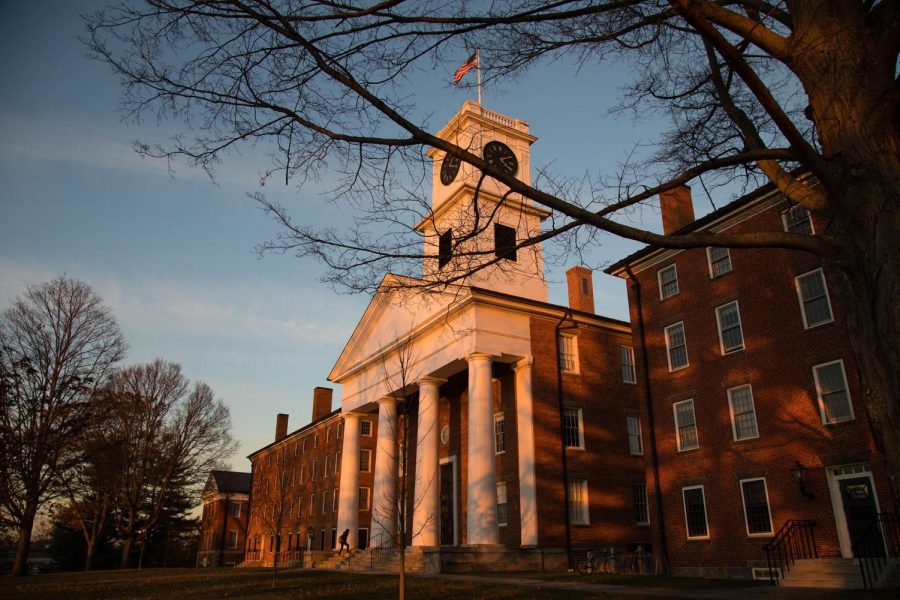Visiting Professor of American studies Rafael Suarez enlightened students and residents of Amherst on the deep, expansive history of Puerto Rico through a talk held on Tuesday night at Amherst College.
Sponsored by the Office of the Dean of the Faculty and the Multicultural Resource Center at Amherst College, the talk provided a detailed recall of the history of Puerto Rico from its attempts to gain independence in the 19th century all the way through its establishment as a U.S. territory and efforts to gain equal treatment by the American government, up to the modern day.
Suarez focused primarily on the relationship between the United States and Puerto Rico, with particular emphasis on how Puerto Rico tends to be forgotten within the minds and dealings of Americans.
“[Puerto Rico] was a culture that was rich, complex and nearly unknown outside of the island …especially in the 19th century,” Suarez said. “Thus, the island’s roll call of heroes and heroines…is basically unknown to mainlanders…After 119 years, Puerto Rico is still foreign, a separate place, part of and not part of the U.S. at the same time.”
Early in the talk, Suarez explained the context and events for how Puerto Rico became a U.S. territory, with the U.S. annexing Puerto Rico following the end of the Spanish American War.
Suarez later explained efforts of Puerto Rican citizens to gain greater equality and legal protections that mainland American citizens enjoy, in which he cited the story of Isabel González.
González, a Puerto Rican citizen in the 19th century who was treated as an immigrant when she tried to travel into the United States, took the U.S. government to the Supreme Court over the issue of free passage into the U.S. for Puerto Ricans, where the court ruled in favor of González.
Suarez also described the U.S. program of Operation Bootstrap, a post-World War II program that although brought factory jobs to Puerto Rico, also hurt the Puerto Rican economy through subsidized fares for many Puerto Ricans to travel to the mainland U.S.
In addition, Suarez emphasized how the Puerto Ricans who were sent to the mainland U.S. struggled economically in their new lives.
“Meanwhile, on the mainland, Puerto Ricans, who, for historical reasons, headed to the U.S. northeast were suffering terribly, as they arrived as workers in a regional economy that was about to enter decades of rapid deindustrialization…only to be blamed for these things upon arrival, instead of being seen as people joined in struggle, united in suffering,” Suarez said.
Suarez concluded the talk with a discussion on Hurricane Maria, the hurricane that ravaged Puerto Rico in the latter half of 2017, and the U.S.’ efforts to help Puerto Rico, which Suarez described as “shockingly slow and incomplete.”
According to Suarez, FEMA hired an entrepreneur in Atlanta to supply 30 million meals for the 3 million inhabitants of Puerto Rico. However, the firm was unable to reach these goals.
Suarez attributed this to mismanagement.
“By the time 18 and a half million meals were due under the terms of the contract, the firm had delivered 50,000 meals, and the pouches to heat the frozen meals had been packaged and delivered separately from the food itself, so people with no appliances, no gas and electricity, couldn’t cook,” Suarez said.
Tom Ashton, an undeclared first-year student at Hampshire College, enjoyed how Suarez avoided being too political in the talk.
“I liked how Rafael didn’t try to shift our opinions, he pretty much told us what happened, he didn’t try to tell it to us in a politically motivated way,” he said.
Robert Hayashi, an associate professor of American studies at Amherst College and one of the around 20 audience members of the talk, felt it is important for Americans to understand Puerto Rico and its history.
“The history of Puerto Rico is something that a lot of Americans have no understanding of, so the contemporary issues that Puerto Rico is facing are without the historical context for Americans to understand and be empathetic toward and we have no small amount of complicity in what those people are experiencing,” Hayashi said.
William Mallas can be reached at [email protected].



















